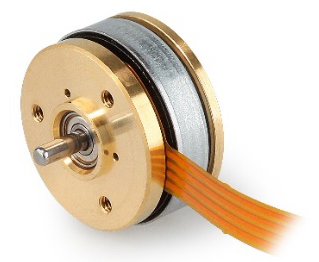Product Watch
A wasp shows the way
 In tumor treatment, neurosurgeons today use a thin, rigid needle to inject medication into the affected brain tissue. This carries a relatively high risk of injuring healthy tissue, because a rigid needle only allows the surgeon to enter a certain region of the brain, following a straight path. The ideal solution would be a flexible operating tool. This is where the London Imperial College comes in. In recent years, a team led by Prof. Rodriguez y Baena worked on developing a flexible robotic needle, capable of reaching the deeper regions of the brain, while simultaneously avoiding especially sensitive areas. The young researchers seek to imitate the special mechanism employed by female wood wasps that use their thin but very strong drill-like stings to lay eggs inside the wood of trees. Under the project name STING (Soft Tissue Intervention and Neurosurgical Guide), the scientists developed a prototype, consisting of four segments with an overall diameter of 2.5 millimeters, held together by a puzzle-like interlocking mechanism. maxon drives provide the back-and-forth motion of the segments.
In tumor treatment, neurosurgeons today use a thin, rigid needle to inject medication into the affected brain tissue. This carries a relatively high risk of injuring healthy tissue, because a rigid needle only allows the surgeon to enter a certain region of the brain, following a straight path. The ideal solution would be a flexible operating tool. This is where the London Imperial College comes in. In recent years, a team led by Prof. Rodriguez y Baena worked on developing a flexible robotic needle, capable of reaching the deeper regions of the brain, while simultaneously avoiding especially sensitive areas. The young researchers seek to imitate the special mechanism employed by female wood wasps that use their thin but very strong drill-like stings to lay eggs inside the wood of trees. Under the project name STING (Soft Tissue Intervention and Neurosurgical Guide), the scientists developed a prototype, consisting of four segments with an overall diameter of 2.5 millimeters, held together by a puzzle-like interlocking mechanism. maxon drives provide the back-and-forth motion of the segments.
Dr Secoli, a member of the Mechatronics in Medicine Lab at the Imperial College, selected the brushless maxon EC20 flat motor with a GP22 planetary gearhead for the application. An EPOS 24/2 positioning controller provides exact positioning. “Easy access to the API (Application Programming Interface) was the major key criterion of selection. On top of that, for fast-prototype system, maxon is the only manufacturer that offers the whole range of products – motor, gearhead, controller,” says Dr Secoli.
In early 2016, the team received a grant of 8.3 million euros from the European Union within the funding scheme Horizon2020. The new project codenamed EDEN2020 (Enhanced Delivery Ecosystem for Neurosurgery), aims to set a new standard in the field of neurosurgical diagnostics and therapy by 2020.












